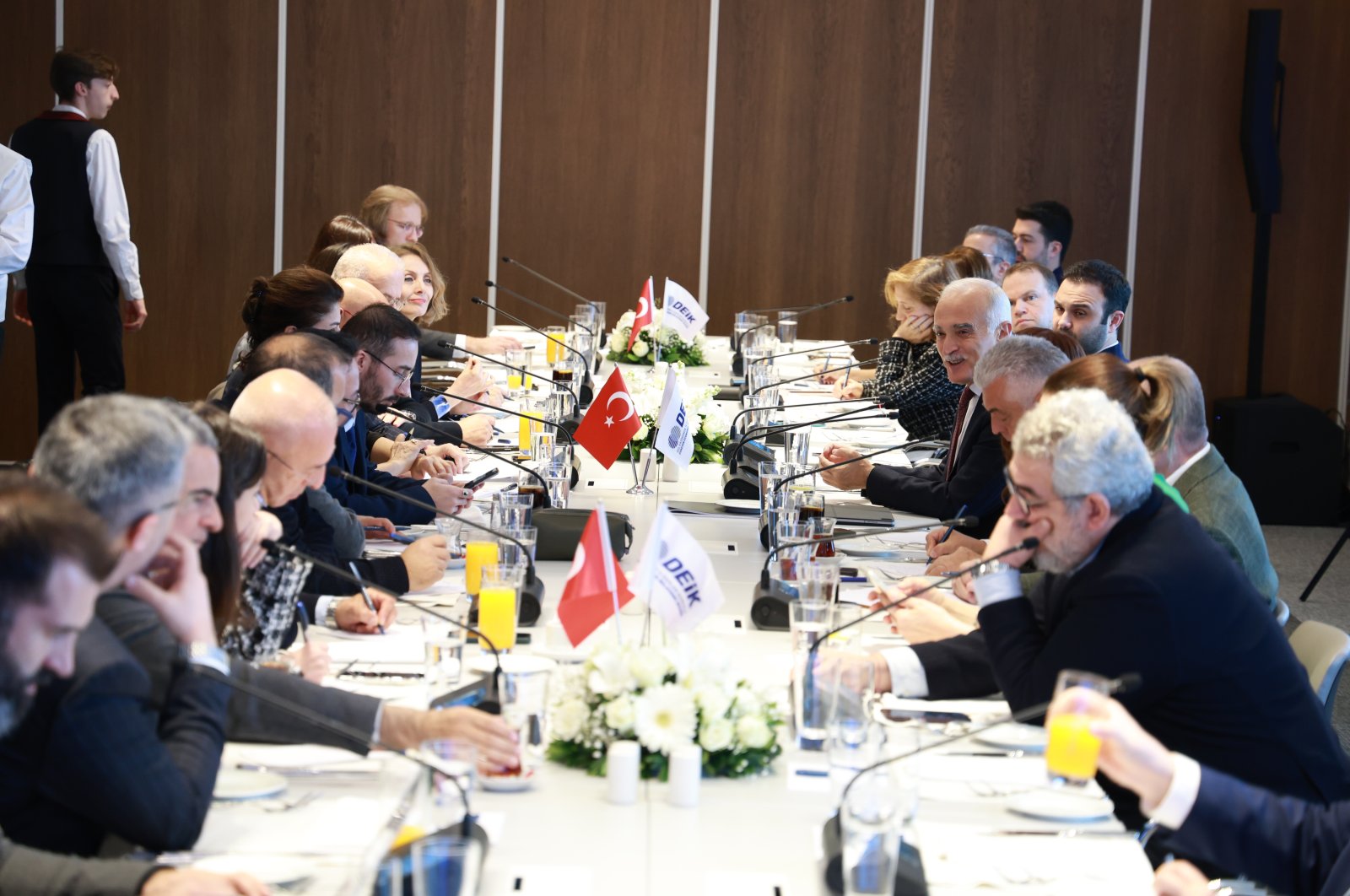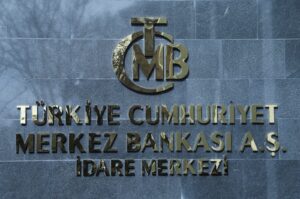One of Türkiye’s top business associations does not see major progress any time soon regarding the modernization of the customs union agreement with the European Union, the country’s largest trade partner.
The upcoming European Parliament elections constitute a fresh risk for an already prolonged process that has been a matter of negotiations for years, according to Nail Olpak, the head of the Foreign Economic Relations Board (DEIK).
“The time factor poses a risk of slowing down the updating of the customs union due to the European Parliament elections,” Olpak told a meeting with journalists on Wednesday.
The EU-Türkiye Customs Union came into force in 1995 but is limited to industrial goods and processed agricultural products. A deeper trade agreement would be expanded to services, farm goods and public procurement.
Türkiye is the only non-EU country with such a deal with the bloc. The European Commission, the EU’s executive arm, has long pushed to revamp the agreement but failed to register any progress.
Any new potential action regarding the agreement could come only later this year, according to Olpak.
“Steps can be taken in this regard only from the second half of the year, which certainly means a loss of time,” he noted. “One would wish that the decision awaited by Türkiye be made even before the elections and the customs union be updated as soon as possible.”
EU citizens are set in June to elect a new European Parliament – the body of 705 lawmakers which, alongside member countries’ representatives, passes new EU policies and laws.
The customs union deal marked a turning point in economic integration between Türkiye and the EU, lifting their bilateral trade volume from just $30 billion in 1995 to nearly $200 billion in 2022.
Olpak says the business world will continue to push for expanding the agreement’s scope and provide support through lobbying efforts.
“Despite the annual trade volume between Türkiye and the EU reaching $200 billion, it is crucial for the customs union, which currently only covers industrial and processed agricultural products, to be rapidly updated to meet the requirements of today’s trade,” he added.
“Within this framework, we continue to convey messages on behalf of the Turkish business world in our meetings with EU countries.”
Türkiye has been an official candidate to join the EU for more than 24 years, but accession talks have stalled in recent years over several disagreements and political roadblocks.
Türkiye suggests it has fulfilled most of the criteria for the membership and despite the stall, it has remained a key economic and defense partner for the 27-member bloc.
Russia payment issues
Among others, Olpak also elaborates on the reports about Turkish companies’ recently facing payment problems and money transfers with Russia, citing new U.S. sanctions announced in December.
Olpak said the matter constitutes a serious risk for the period ahead.
Banks in Türkiye are said to have expanded scrutiny of transactions related to Russia to avoid being subject to U.S. sanctions, leading to prolonged money transfers.
“On the Russian side, the U.S. played its biggest card in terms of payments and money transfers. Therefore, the decisions on Dec. 22 pose a significant risk ahead of us,” said Olpak.
“Steps taken regarding banking transactions will directly impact many countries.”
Russia ranks seventh in the list of countries to which Turkish companies export, with some $9.4 billion worth of goods exported last year, according to the Turkish Exporters Assembly (TIM) data.
Turkish exporters to Russia earlier this month said they faced more payment problems in recent weeks due to year-end auditing, but the situation should get better soon.
They said money transfers made by Russian companies not included in Western sanctions imposed over Moscow’s invasion of Ukraine have been conducted without problems, but end-year auditing and checks have caused a slowdown.
Last month, U.S. President Joe Biden signed an executive order threatening penalties for financial institutions that help Russia circumvent sanctions. The order also gives Washington the ability to broaden import bans on certain Russian goods.
Focus on the Middle East, Gulf
Olpak said they will focus on the Middle East and the Gulf in the upcoming period.
“The Middle East and Gulf countries are extremely important for us,” he noted.
The last three years have seen Türkiye launch a diplomatic effort to revitalize links with several nations in the Gulf, led by Saudi Arabia and the United Arab Emirates (UAE).
The normalization came after yearslong tense relations that hit trade, particularly to Saudi Arabia, where exports saw a long, steep fall driven mainly by informal embargoes on Turkish goods.
“We experienced a 150% increase in exports in Saudi Arabia, but we started from scratch and reached this point again,” said Olpak.
“Our trade volume has reached $6 billion.”
He reiterated Saudi Arabia’s invitation to the Turkish business world to engage with projects related to the kingdom’s Vision 2030 economic transformation plan.
The plan envisages hundreds of billions in investments to help wean the economy off hydrocarbon income and build big infrastructure projects to develop sectors such as tourism and industry.
“Saudi Arabia is inviting the Turkish business world for the Saudi 2030 vision. Their biggest problem is that they cannot find companies to do business with. Therefore, they express this to us openly and say, ‘Let’s work together,'” said Olpak.
“In the past, you needed a Saudi partner to do business there, but now there is no such obstacle. Türkiye has a significant chance of getting a substantial share from the projects in that region.”
Olpak said the exchange with the UAE faced no major roadblocks in recent years.
“Our foreign trade with the United Arab Emirates did not stop at all. Currently, we have reached $8.5 billion in exports,” added Olpak.
Türkiye and the UAE signed 13 agreements covering investments worth $50.7 billion during President Recep Tayyip Erdoğan’s visit in mid-July as part of his Gulf trip, which also included stops in Saudi Arabia and Qatar.
In the UAE, Olpak said there is a “renewed interest in Türkiye in the energy sector, and they are interested in green projects.”
“They want to come to Türkiye for investments. However, rightly so, they focus on projects that be launched together and projects where we will jointly give the go-ahead,” he noted.
And Qatar is Türkiye’s most important ally in the region.
“We are already in a good position with Qatar. We are moving forward together in terms of foreign trade and finance,” the DEIK chief said.




















































Be First to Comment